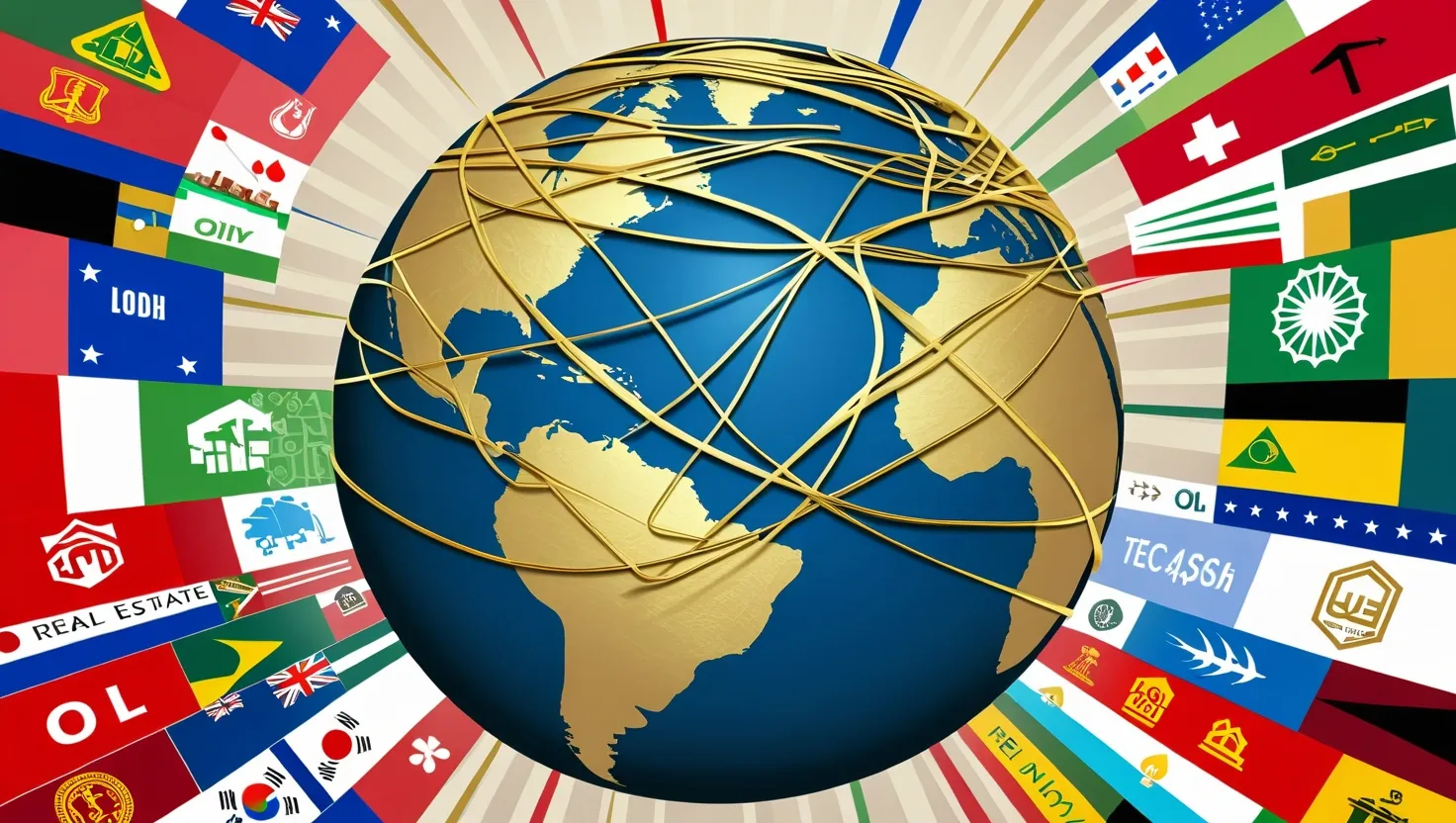Sovereign Green Bonds: How Governments Are Funding a Sustainable Future
Sovereign green bonds are government-issued debt instruments for funding eco-friendly projects. They signal commitment to sustainability, attract investors, and reshape environmental policies. These bonds follow strict guidelines, ensuring transparency and accountability. The global market has grown significantly, with countries like India and France leading the way. This innovative tool bridges finance and sustainability, transforming how nations fund their green initiatives.

Circular Fashion Revolution: Sustainability Meets Style in Eco-Friendly Clothing Trends
Circular fashion is reshaping the industry by creating a closed-loop system that maximizes resource efficiency and minimizes waste. It focuses on designing durable, timeless garments, using sustainable materials, and promoting recycling and upcycling. This approach reduces environmental impact, meets growing consumer demand for eco-friendly products, and offers long-term cost savings for businesses.

Longevity Bonds: The Secret Weapon for Tackling Retirement Risks in an Aging World
Longevity bonds are financial tools that help manage risks of people living longer than expected. They link payouts to mortality rates, benefiting insurers and pension funds. These bonds can reshape retirement planning by adjusting to real-time demographic changes. However, they face ethical questions and market challenges, including liquidity issues and pricing difficulties. As populations age, demand for these innovative instruments may grow.

The Controversial Comeback of Tontines: A Financial Gamble on Life and Death
Tontines: A historical investment scheme where members pool money, with survivors inheriting funds of deceased participants. Originated in 17th-century Europe as a government fundraising tool, tontines offered longevity insurance but faced controversy due to exploitation. They influenced modern insurance development and are being reconsidered for retirement challenges, despite ethical concerns about profiting from others' deaths.

Secret Money Network: Inside Hawala's Hidden World of Trust-Based Transfers
Hawala: An ancient, informal money transfer system based on trust and personal networks. It offers quick, low-cost transfers, especially in regions with limited banking. While vital for many communities, it poses risks of fraud and illicit use due to lack of documentation. Governments struggle to regulate it without disrupting its legitimate functions. Hawala showcases the resilience of traditional practices in modern finance.

Slow Money: Investing in Local Food for a Sustainable Future
Slow Money is a grassroots movement that redirects investments towards local, sustainable food enterprises. It challenges conventional investing by prioritizing social and environmental benefits alongside financial returns. The movement supports small-scale farmers, promotes food security, and rebuilds local food systems through community engagement and education. Slow Money aims to reconnect people with their food sources and create a more sustainable future.

Perpetual Bonds: The Endless Money Stream You Never Knew Existed
Perpetual bonds offer endless interest payments without principal repayment. They've been used historically by governments and banks for long-term financing. These bonds are valued based on coupon payments and discount rates. While providing steady income, they carry credit and call risks. Perpetual bonds could help fund long-term projects like infrastructure and climate change initiatives, offering unique benefits for investors seeking stable returns.

Shadow Banking Exposed: The Hidden Financial System Shaping Your Money's Future
Shadow banking involves non-bank financial institutions performing bank-like functions without the same regulations. It includes hedge funds, private equity, and mortgage lenders. While providing crucial credit, it poses risks due to less oversight. The system impacts monetary policy, complicates regulation, and influences market stability. Understanding shadow banking is vital for investors navigating modern finance.

Trillion-Dollar Giants: How Sovereign Wealth Funds Are Changing Global Finance
Sovereign Wealth Funds (SWFs) are government-owned investment entities that manage vast sums of money, often from natural resources. With assets totaling $10.14 trillion, they shape global markets, invest in diverse sectors, and influence economic policies. SWFs offer economic diversification and stability but raise concerns about transparency and market distortion. Their growing power highlights the need for international standards and careful monitoring.

Microfinance: The Hidden Pitfalls Behind the Poverty-Fighting Promise
Microfinance, once seen as a poverty-fighting tool, has shown mixed results. It can help in short-term crises but often leads to debt traps. Small loans rarely spark sustainable business growth. High interest rates and profit-driven models have shifted focus from social impact. Job creation and increasing worker productivity may be more effective in alleviating poverty than distributing microloans.

Tobin Tax: The Tiny Fee That Could Transform Global Finance
The Tobin tax proposes a small levy on international financial transactions to curb speculative trading and fund global development. It aims to stabilize currency markets and generate significant revenue for critical global issues. While implementation faces challenges, some countries have experimented with similar financial transaction taxes. The concept highlights the need for a balanced approach to global finance and international cooperation.

Bretton Woods: How 44 Countries Shaped Today's Global Economy
The Bretton Woods Conference of 1944 created a post-World War II economic system with fixed exchange rates, the IMF, and World Bank. It fostered stability and growth but faced challenges by the 1970s. Today, its legacy highlights the importance of international cooperation in addressing global economic issues, though the system needs updating for modern realities.

Urban Farming and Faith: How Spiritual Beliefs Are Greening Cities
Urban farming, driven by spiritual beliefs, is transforming cities worldwide. Religious communities are turning vacant lots into gardens, fostering sustainable living and community bonds. These initiatives address food security, promote ecological practices, and provide spaces for spiritual reflection. From Christian to Hindu traditions, faith-based urban agriculture is reshaping urban landscapes, offering hope and resilience in challenging environments.
